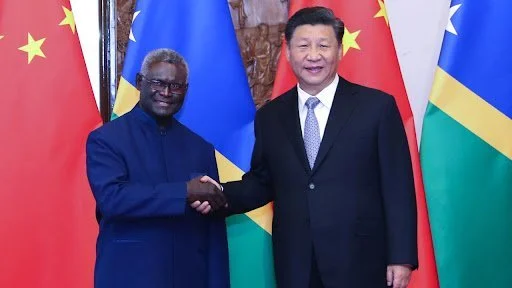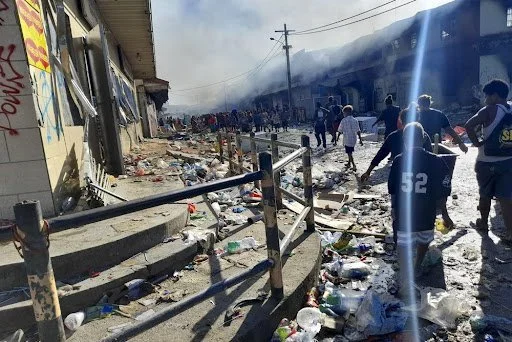The Solomon Islands: A New Focus in US-China Relations
While the geopolitical focus has shifted towards Europe in the last few months, the Indo-Pacific region and its constituent nations remain in an increasingly competitive environment. The Solomon Islands, an archipelago situated to the east of Papua New Guinea, has recently received increased attention from the United States and China as both nations have sought to enforce their strategic goals in the Oceanic region.
Solomon Islands Prime Minister Manasseh Sogavare found himself in the spotlight after his administration switched its diplomatic allegiance from Taiwan to Beijing in 2019. The Solomon government solidified this realignment by revealing on Thursday that it had signed a policing cooperation agreement with China. Another document, a draft bilateral security cooperation agreement, was leaked Friday. This document would allow China to send police and armed forces to the islands for a variety of reasons, including “maintaining social order.”
Wang Wenbin, a spokesperson for China’s Foreign Ministry, said China’s collaboration with the Solomon Islands promotes “peace and stability in the region” and enhances “common interests of China and the Solomon Islands, as well as all countries in the region.”
Chinese President Xi Jinping and Solomon Islands' Prime Minister Manasseh Sogavare meet in Beijing, October 9, 2019. Photo: Yao Dawei/Xinhua/Getty Images
The agreements come in the wake of violent protests and civil unrest in Honiara in November 2021, which led Australia and New Zealand to send military and civilian law enforcement officers to the Solomon Islands. The Sogavare government blamed these protests on foreign intervention, stating that the violence was "unfortunately influenced and encouraged by other powers." However, critics of the government blamed the unrest on Sogavare’s foreign policy choices and his neglect of the economic blight in the nation's most populous province, Malaita.
Jonathan Pryke of the Lowy Institute noted these influences worked in tandem, saying that "geopolitical tensions have been the spark but not the major driver."
Regardless of the origins of this violence, both the United States and China have seized this opportunity to attempt to increase their influence as the Solomon government struggles to maintain political control over its people and periphery islands. The destabilizing civil unrest in November changed the calculus for the United States, making it increasingly untenable to remain idle.
People walk through the looted streets of Chinatown in Honiara, Solomon Islands, Friday, Nov. 26, 2021. Photo: Piringi Charley/AP Photo
While the Solomon Islands opens its doors to the Beijing security apparatus, the United States and the State Department have begun scaling up diplomatic infrastructure. In February, the Biden administration announced a new strategy for a “free and open Indo-Pacific” and Secretary of State Antony Blinken visited the island of Fiji to reaffirm the US’ commitment to diplomacy and security in the region. The State Department also notified Congress that they would open an embassy in Honiara, the Solomon Islands’ capital.
The State Department said that “the United States has a strategic interest in enhancing our political, economic, and commercial relationship with Solomon Islands, the largest Pacific Island nation without a U.S. Embassy” and made clear its plans to increase US influence in the nation before China becomes “strongly embedded.”


